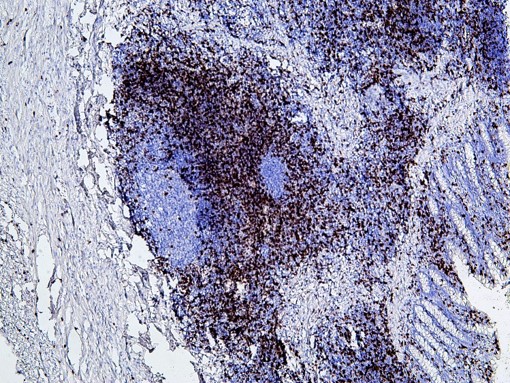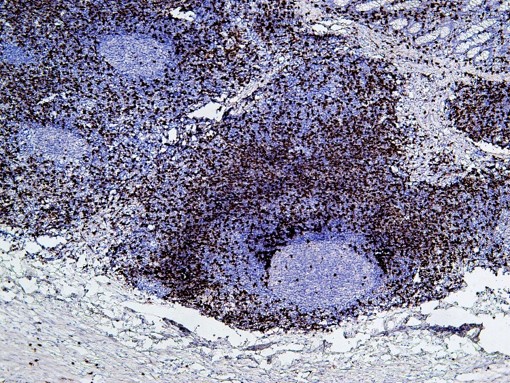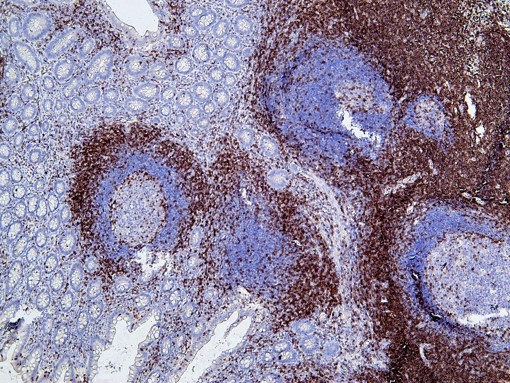S100P (ABT229) IHC kit
- Catalog No.:IHCM6909
- Applications:IHC
- Reactivity:Human;
- Target:
- S100P
- Gene Name:
- S100P S100E
- Protein Name:
- S100P
- Human Gene Id:
- 6286
- Human Swiss Prot No:
- P25815
- Immunogen:
- Synthesized peptide derived from human S100P AA range: 1-200
- Specificity:
- The antibody can specifically recognize human S100P protein.
- Source:
- Mouse, Monoclonal/IgG1, Kappa
- Purification:
- The antibody was affinity-purified from mouse ascites by affinity-chromatography using specific immunogen.
- Storage Stability:
- 2°C to 8°C/1 year
- Other Name:
- Protein S100-P (Protein S100-E;S100 calcium-binding protein P)
- Background:
- The protein encoded by this gene is a member of the S100 family of proteins containing 2 EF-hand calcium-binding motifs. S100 proteins are localized in the cytoplasm and/or nucleus of a wide range of cells, and involved in the regulation of a number of cellular processes such as cell cycle progression and differentiation. S100 genes include at least 13 members which are located as a cluster on chromosome 1q21; however, this gene is located at 4p16. This protein, in addition to binding Ca2+, also binds Zn2+ and Mg2+. This protein may play a role in the etiology of prostate cancer. [provided by RefSeq, Jul 2008],
- Function:
- miscellaneous:This protein binds two calcium ions.,similarity:Belongs to the S-100 family.,similarity:Contains 2 EF-hand domains.,subcellular location:Colocalizes with S100PBP in the nucleus.,subunit:Homodimer. Interacts with S100PBP and S100Z.,tissue specificity:Up-regulated in various pancreatic ductal adenocarcinomas and pancreatic intraepithelial neoplasias.,
- Subcellular Location:
- Nuclear, Cytoplasmic
- Expression:
- Detected in all of the tissues except brain, testis and small intestine, expression level is higher in placenta, heart, lung, skeletal muscle, spleen and leukocyte. Up-regulated in various pancreatic ductal adenocarcinomas and pancreatic intraepithelial neoplasias.
- June 19-2018
- WESTERN IMMUNOBLOTTING PROTOCOL
- June 19-2018
- IMMUNOHISTOCHEMISTRY-PARAFFIN PROTOCOL
- June 19-2018
- IMMUNOFLUORESCENCE PROTOCOL
- September 08-2020
- FLOW-CYTOMEYRT-PROTOCOL
- May 20-2022
- Cell-Based ELISA│解您多样本WB检测之困扰
- July 13-2018
- CELL-BASED-ELISA-PROTOCOL-FOR-ACETYL-PROTEIN
- July 13-2018
- CELL-BASED-ELISA-PROTOCOL-FOR-PHOSPHO-PROTEIN
- July 13-2018
- Antibody-FAQs
- Products Images
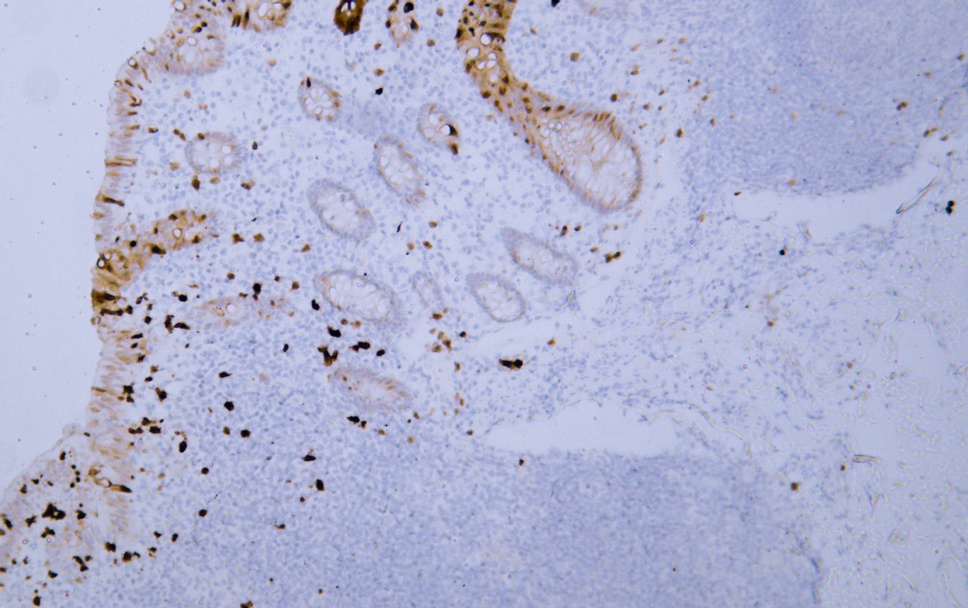
- Human appendix tissue was stained with Anti-S100P (ABT229) Antibody
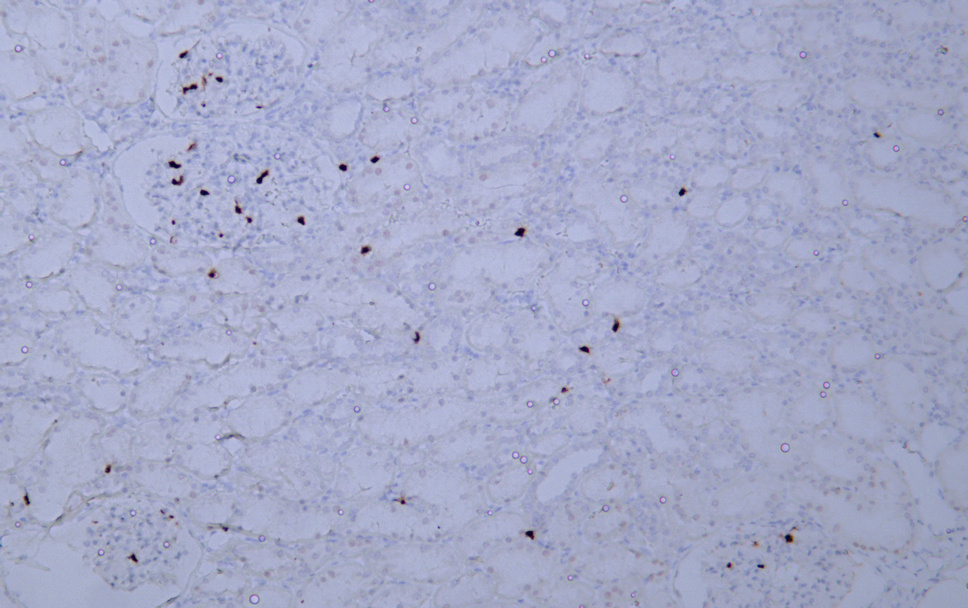
- Human kidney tissue was stained with Anti-S100P (ABT229) Antibody

- Human pancreatic cancer tissue was stained with Anti-S100P (ABT229) Antibody
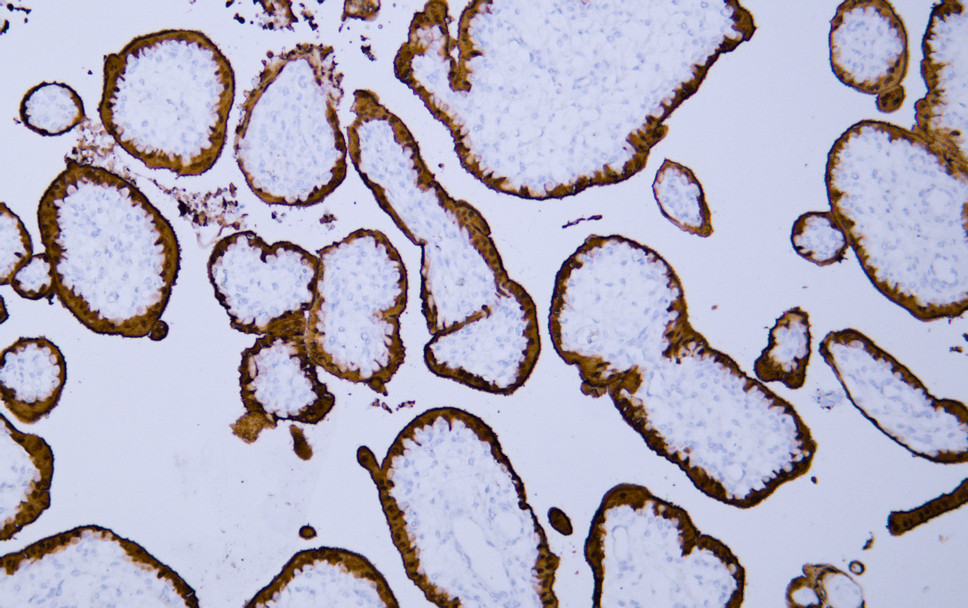
- Human placenta tissue was stained with Anti-S100P (ABT229) Antibody
